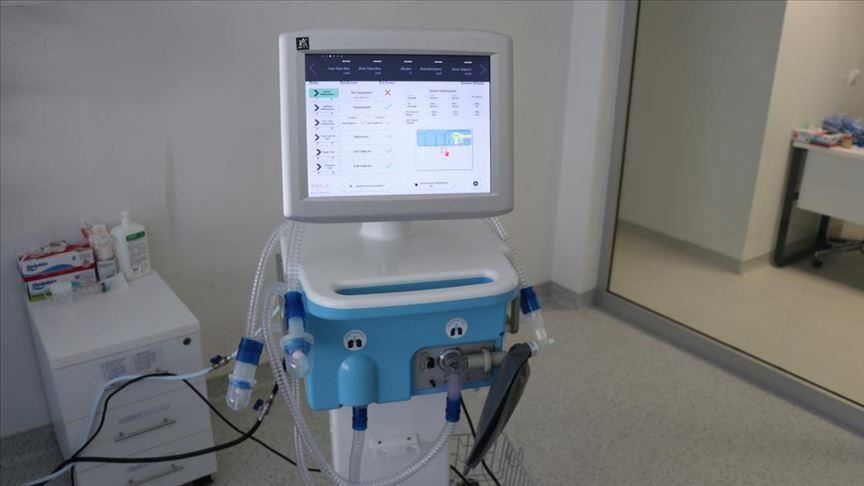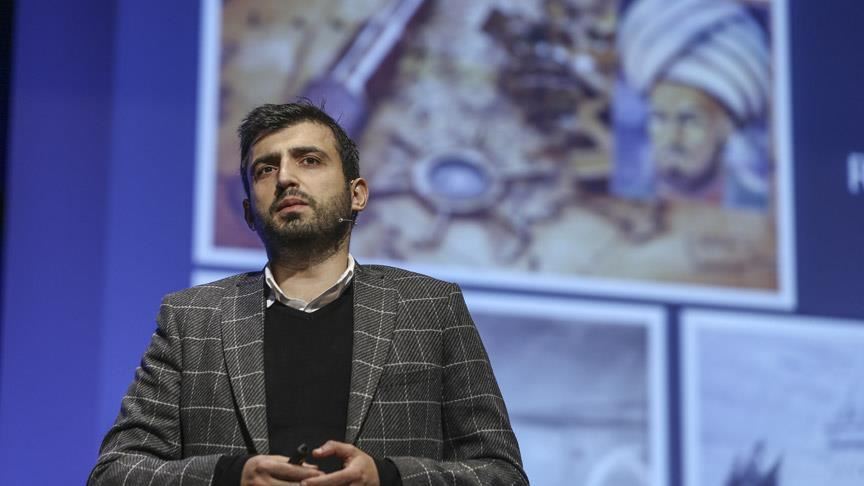Turkey's great success: Producing ventilators in 2 weeks amid pandemic
Country launches mass production of mechanical ventilators, to produce 5,000 devices till end of May

ISTANBUL
Turkey, just in two weeks, achieved to start mass production of mechanical ventilators which are critical in treating the novel coronavirus, while the whole world is looking for these devices.
All countries face medical equipment shortages, including personal protective equipment, respirators and masks.
With severe shortness of breath, a hallmark of the virus, the pandemic has raised the need for medical ventilators, resulting in a fresh impetus for defense, technology and automotive companies across the globe to research and manufacture the devices.
US President Donald Trump even used the US’s Defense Production Act to push General Motors for producing mechanical ventilators.
In Turkey, three companies -- unmanned aerial vehicle producer Baykar, defense giant Aselsan and major appliances firm Arcelik -- decided to support a technology enterprise BIOSYS' mechanical ventilator, named Biyovent, to begin mass production.
Biyovent was developed after a five-year research and development process in 2012-2017 and the company produces and sells 32 devices.
Firms started the mass production process and delivered the first 100 devices to Basaksehir City Hospital, which opened last week in the Turkish metropolitan city of Istanbul.
"After the COVID-19 crisis, we started to work for trying to manufacture critical parts of the device locally," said Cemal Erdogan, the head of BIOSYS.
Medical companies, in the past, bought some parts, such as valves and chips, of these devices from other countries for production.
Due to the pandemic, several countries stopped or limited medical goods and equipment exports to secure internal consumption, causing problems for manufacturing ventilators.
Erdogan said the device includes more than 2,000 components, and almost all parts, including valves, were produced indigenously.
"Producing this device requires high-capacity, multidisciplinary engineering and critical tests," he said.

Mobilization process
Selcuk Bayraktar, the chief technology officer of Baykar, said exports of the devices, even its parts or test equipment, were prohibited globally.
Countries' protective steps for domestic needs have damaged every country, but Turkey had an opposite situation, he expressed.
The International Monetary Fund and the World Trade Organization also urged governments to act carefully for export restrictions on mechanical ventilators.
Not just four main shareholders -- Baykar, Aselsan, Arcelik and BIOSYS -- but Turkish engineers and subcontractor firms also supported the project under the leadership of President Recep Tayyip Erdogan, he said.
"When we couldn't supply many systems from abroad, we had to develop them domestically. The support of our subcontractors was of great significance," he noted.
Bayraktar stressed that Albert Saydam, the CEO of a rubber firm Tekno Kaucuk, used every means available to support the production of the device, even during a time when he tested positive for the virus.
Tekno Kaucuk opened its factory during weekends to produce one of the parts of the device, he added.

5,000 devices to be manufactured until end of May
"I think the secret of this success was the senses of compassion, charitableness and justice, which are the values of our civilization," he highlighted.
He said: "Especially during such a pandemic, the chance of being a breath to humanity has surrounded us."
Bayraktar added that Arcelik will produce 5,000 devices by the end of May and Aselsan is also establishing a production line.
"We continue to work with BIOSYS and Aselsan for the development of all systems on the technology side," he noted.
Referring to the campaign for the devices, he said that Baykar donated 250 devices to the country's Health Ministry to use in hospitals or send to friendly nations.
Aselsan, the missile producer Roketsan, Arcelik, defense firm Havelsan, e-commerce giant Amazon's Turkey branch, Turkish Aerospace Industries and agricultural technology company Tarnet also joined the campaign.
"Our Health Ministry also ordered 5,000 units. We now have over 1,000 devices to donate through our campaign," he stressed.
Very few countries can produce
Dr. Mustafa Yilmaz, the general secretary of the Alliance of International Doctors, said mechanical ventilators are used in intensive care services and surgeries for patients who have respiratory diseases.
He noted that according to the World Health Organization, 80% of COVID-19 patients do not require hospital treatment.
"The rest 20% are inpatients. One-fourth of our inpatients, or 5% of total patients, need intensive care based on the course of the disease," said Yilmaz, who is also the deputy chief physician in Istanbul's Gaziosmanpasa Training Research Hospital.
There is no general rule that every patient in intensive care needs a ventilator, he stressed, adding that when needed, medical staff provide respiratory support with mechanical ventilators.
While Turkey had around 18,000 mechanical ventilators and 25,000 intensive care beds before the pandemic, the UK had only 8,175 devices, he reminded.
He also said: "With new device production, Turkey achieved to make a great job by allocating a respirator device for almost every intensive care bed."
"In the absence of these critical devices, which can be produced by very few countries in the world, patients pass away so fast. So Turkey's manufacturing activity is very valuable," Yilmaz added.
After originating in Wuhan, China last December, COVID-19 has spread to at least 185 countries and regions, with Europe and the U.S. the worst-hit regions.
To assist other nations, Turkey also boosted its production of masks, gloves and personal protective equipment, and donated them to scores of countries, including Spain, Italy and the UK.
In Turkey, the virus has infected over 107,700 people so far, and caused 2,706 deaths.
Worldwide cases surpassed 2.9 million with more than 203,000 virus-linked deaths. Over 822,700 patients have recovered, according to data compiled by Johns Hopkins University.
Anadolu Agency website contains only a portion of the news stories offered to subscribers in the AA News Broadcasting System (HAS), and in summarized form. Please contact us for subscription options.

